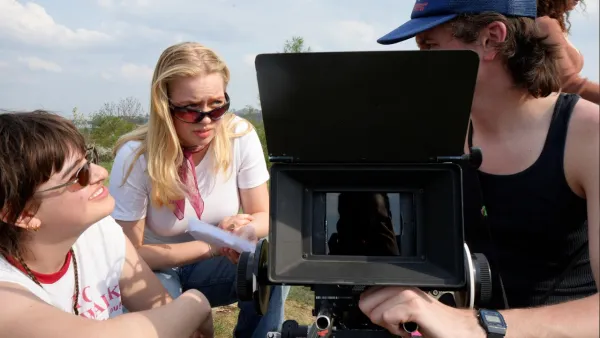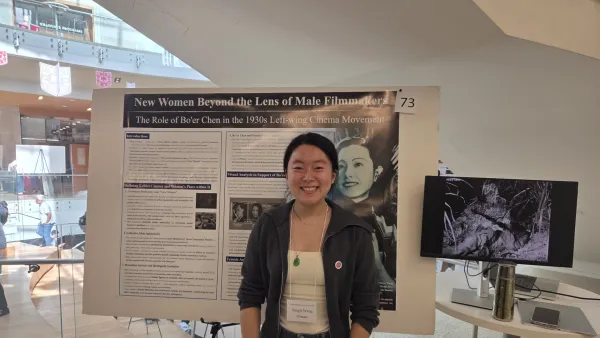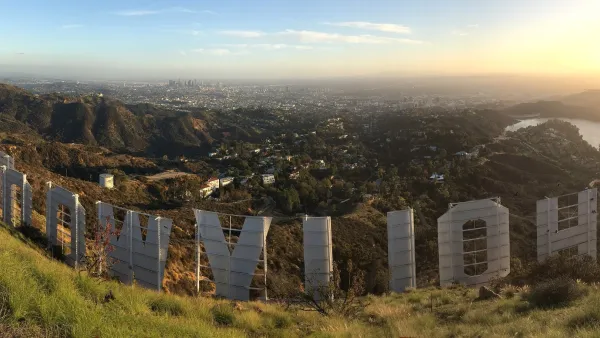Led by Film and Media Studies senior lecturer Deirdre Maitre, "Hap|Ography" aims to become a St. Louis-wide moving image anthology, filled with personal visions of happiness.
A collection of short, slice-of-life vignettes plays on a pair of monitors in Deirdre Maitre’s office: a duck floats and preens on a wintry pond, a young man assembles dumplings on a kitchen cutting board, a dog sniffs eagerly along a sidewalk.
These videos originate straight from the daily lives of Maitre’s students, with each one representing a personal answer to the prompt, “What is happiness?”
A senior lecturer in the Program in Film and Media Studies, Maitre has curated these videos as part of Hap|Ography, a project that will grow into a broader moving image anthology of human happiness. With support from a Center for the Literary Arts Teaching Innovation Award, Maitre and undergraduate research assistant Sophie Yoshino have spent the summer and fall cataloguing these documentary-style glimpses into student well-being, preparing for the launch of an archival website and live exhibits down the road.
The videos, which Maitre dubs “Hap|Ographs,” are filmed vertically on smartphones and informed by the history of documentary filmmaking. Beyond putting filmmaking concepts into action, the project is also designed to break students from living inside their phones.
“There is this component to the project where we're trying to counteract the negative impacts of social media,” Maitre said, “by giving students the opportunity to better understand the smartphone as a creative tool, rather than just a device that delivers content to you.”
Of course, some habits die hard. Maitre and Yoshino have noticed a trend this semester of students mimicking TikTok aesthetics in their submissions, filming more in the style of social media influencers than documentarians. One participating student, in fact, turned out to be a successful influencer in their native Hong Kong, which made their approach to the project more understandable.
“It was clearly what we call ‘validation-seeking content,’” Maitre said, “which is antithetical to how students have been guided to create their footage.”
Maitre began the project in spring 2023, with the CLA award helping to purchase new vertical monitors to display the videos, as well as supporting Yoshino’s research work. Yoshino’s efforts to classify and archive the videos are meant to move the project beyond a mere warm-and-fuzzy collection of shorts, and instead bring it into conversation with current psychological research on creativity and happiness.
“This summer, we did a lot of research on creativity and the creative process,” Yoshino said. “So based on that, we came up with these categories for the film techniques that students used, and what emotion states they were feeling while they filmed. We’ll ask, ‘What in this Hap|Ograph was making you feel happy?’ It might be social connection, or a cultural connection, or nostalgia.”
Maitre aims to find additional community partners and funding to expand the concept of Hap|Ography to a St. Louis-wide project.
“We want to develop community-based workshops for young people or high school students, and potentially make this more of a St. Louis endeavor,” Maitre said. “That would then allow folks to come in and learn about the project, create their own work, and then bring in their footage, so that we can also create community-based collections. It would be more about well-being in St. Louis and different diverse representations from across cultures, communities, and neighborhoods.”
Learn more about WashU Arts & Sciences’ Teaching Innovation Awards here.



